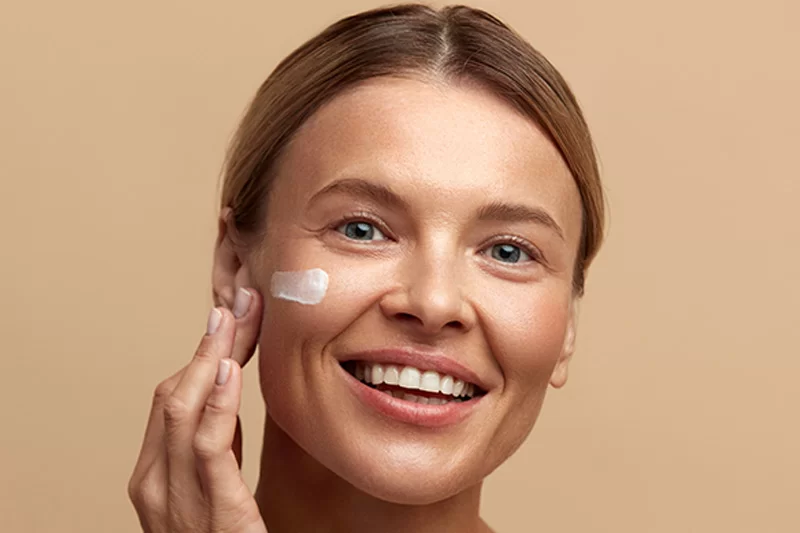Retinol has become a buzzword in the world of skincare, known for its powerful anti-aging and skin-rejuvenating properties. Whether you’re dealing with fine lines, wrinkles, acne, or uneven skin tone, retinol serum can be a game-changer. But what exactly is retinol, and how can it transform your skin? In this comprehensive guide, we’ll dive deep into everything you need to know about retinol serum for face, from its benefits to how you can incorporate it into your skincare routine.
Table of Contents
ToggleWhat is Retinol?
Retinol is a form of vitamin A, an essential nutrient that promotes skin cell turnover and boosts collagen production. Unlike other forms of vitamin A, such as retinoic acid, retinol is gentler on the skin, making it suitable for over-the-counter skincare products. When applied topically, retinol works to enhance the skin’s texture, tone, and overall health.
It belongs to the broader category of retinoids, which includes stronger prescription-strength options like tretinoin. However, retinol remains a popular choice for its efficacy and reduced risk of irritation, especially for those new to retinoids.
The Benefits of Retinol Serum for the Face
Retinol serum is often recommended by dermatologists and skincare experts due to its numerous benefits. Here’s a closer look at what makes it such an essential part of a skincare regimen:
- Reduces Fine Lines and Wrinkles
One of the most well-known benefits of retinol is its ability to minimize the appearance of fine lines and wrinkles. By increasing collagen production, retinol helps to firm the skin and smooth out these signs of aging. Over time, you’ll notice your skin becoming more youthful and plump.
- Improves Skin Texture
Retinol works by encouraging skin cell turnover, which means it helps shed dead skin cells and promotes the growth of new, healthy cells. This process results in smoother, softer skin. Retinol can also reduce the appearance of enlarged pores, giving your complexion a more refined look.
- Evens Out Skin Tone and Fades Hyperpigmentation
Retinol is highly effective in reducing dark spots, sun spots, and hyperpigmentation. With consistent use, it helps to fade discoloration caused by sun damage, acne scars, or hormonal changes, leading to a more even skin tone.
- Fights Acne
Retinol isn’t just for aging skin—it’s also a powerful tool for combating acne. Its ability to prevent clogged pores, reduce inflammation, and regulate oil production makes it a favorite for those dealing with breakouts. Over time, retinol can clear up acne and prevent future breakouts.
- Boosts Collagen Production
As we age, collagen production slows down, leading to sagging and the formation of wrinkles. Retinol stimulates collagen production, helping to maintain the skin’s elasticity and firmness. This not only reduces wrinkles but also prevents them from forming as quickly.
- Enhances Skin Radiance
If your skin has lost its natural glow, retinol can help restore it. By removing dead skin cells and promoting cell renewal, retinol unveils fresh, vibrant skin. You’ll notice a more radiant, healthy-looking complexion with regular use.
- Supports Overall Skin Health
Beyond its cosmetic benefits, retinol enhances the overall health of your skin. It strengthens the skin barrier, improves moisture retention, and helps skin function optimally.
How to Use Retinol Serum in Your Skincare Routine
While retinol is incredibly effective, it’s also potent and can cause irritation if not used properly. Here’s how to incorporate retinol serum into your skincare routine for maximum benefits while minimizing potential side effects.
- Start Slowly
If you’re new to retinol, it’s crucial to start with a lower concentration and gradually work your way up. Most over-the-counter retinol serums come in concentrations ranging from 0.25% to 1%. Start with the lowest concentration and use it 2-3 times a week at first.
As your skin builds tolerance, you can increase the frequency to every other night or even nightly, depending on how your skin responds.
- Apply at Night
Retinol is best used at night because it can make your skin more sensitive to the sun. Applying it in the evening gives your skin time to repair and renew while you sleep. Always use sunscreen during the day, even if you’re only applying retinol at night, to protect your skin from sun damage.
- Use a Pea-Sized Amount
When it comes to retinol, a little goes a long way. Use a pea-sized amount of serum for your entire face. Apply it after cleansing and toning, but before your moisturizer. Make sure to spread it evenly across your face, avoiding the delicate skin around your eyes.
- Moisturize Well
Retinol can be drying, especially when you first start using it. To prevent dryness and flaking, follow up with a good moisturizer. Look for products that contain hydrating ingredients like hyaluronic acid, glycerin, or ceramides.
- Be Patient
Retinol isn’t a quick fix—it takes time to see results. Depending on your skin type and concerns, it can take 8 to 12 weeks of consistent use to notice significant changes. Patience and consistency are key when using retinol serum.
- Listen to Your Skin
While retinol can be incredibly beneficial, it’s important to listen to your skin. If you experience excessive dryness, redness, or irritation, consider reducing the frequency of application or switching to a lower concentration. You can also try the “sandwich” method, where you apply moisturizer before and after the retinol serum to buffer its effects.
Who Should Use Retinol Serum?
Retinol serum can benefit almost everyone, but it’s particularly useful for those dealing with:
- Aging skin: Anyone looking to reduce the appearance of fine lines, wrinkles, and sagging skin will find retinol beneficial.
- Acne-prone skin: Retinol can help treat and prevent breakouts, as well as reduce acne scars.
- Hyperpigmentation: If you have dark spots or uneven skin tone, retinol can help fade pigmentation and even out your complexion.
- Dull or rough skin texture: Retinol’s exfoliating properties can transform rough, lackluster skin into smooth, glowing skin.
However, those with very sensitive skin or conditions like rosacea should be cautious when using retinol, as it can cause irritation. If you’re unsure, consult a dermatologist to determine whether retinol is right for your skin type.
Potential Side Effects of Retinol Serum
While retinol is a fantastic ingredient, it’s not without its potential side effects. Common issues include:
- Dryness and Peeling: These are the most common side effects, especially when you first start using retinol. This usually subsides as your skin adjusts, but a good moisturizer can help alleviate these symptoms.
- Redness and Irritation: Retinol can cause irritation, particularly if used too frequently or in too high a concentration. Start slow and gradually increase usage to minimize irritation.
- Increased Sun Sensitivity: Retinol can make your skin more susceptible to sun damage, which is why it’s important to use sunscreen daily.
To avoid these side effects, follow the tips outlined above and listen to your skin. If the side effects persist or worsen, discontinue use and consult a dermatologist.
Choosing the Right Retinol Serum
With so many retinol products on the market, choosing the right one can be overwhelming. Here are a few things to look for when selecting a retinol serum for your face:
- Concentration: If you’re new to retinol, start with a lower concentration (0.25%-0.5%) and gradually increase as your skin builds tolerance.
- Formulation: Look for serums that contain hydrating ingredients like hyaluronic acid or glycerin to counteract dryness. Some serums are also formulated with soothing ingredients like niacinamide to reduce irritation.
- Packaging: Retinol is sensitive to light and air, so choose a product that comes in an opaque, air-tight container to ensure its potency.
Conclusion
Retinol serum is a skincare powerhouse that offers numerous benefits for the face, from reducing fine lines and wrinkles to fighting acne and evening out skin tone. While it requires patience and proper usage, the results are well worth it. By incorporating retinol serum into your skincare routine, you can achieve smoother, more youthful, and radiant skin.
Always remember to start slowly, moisturize well, and use sunscreen during the day to protect your skin while enjoying the transformative effects of retinol. Whether you’re battling signs of aging, acne, or dull skin, retinol can be your go-to ingredient for a glowing complexion.














